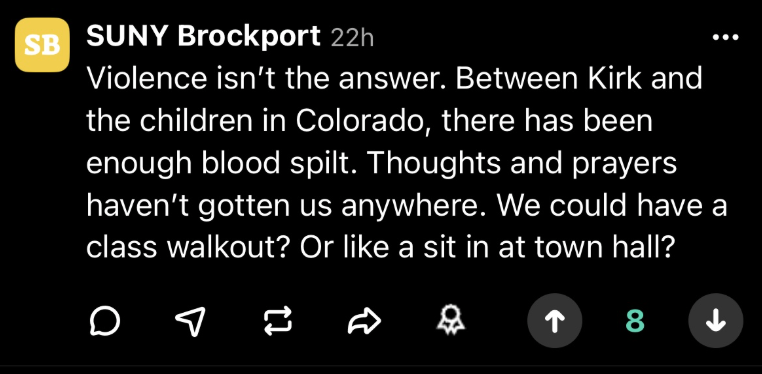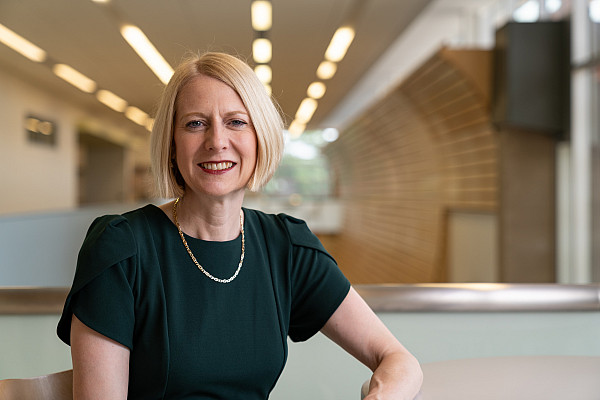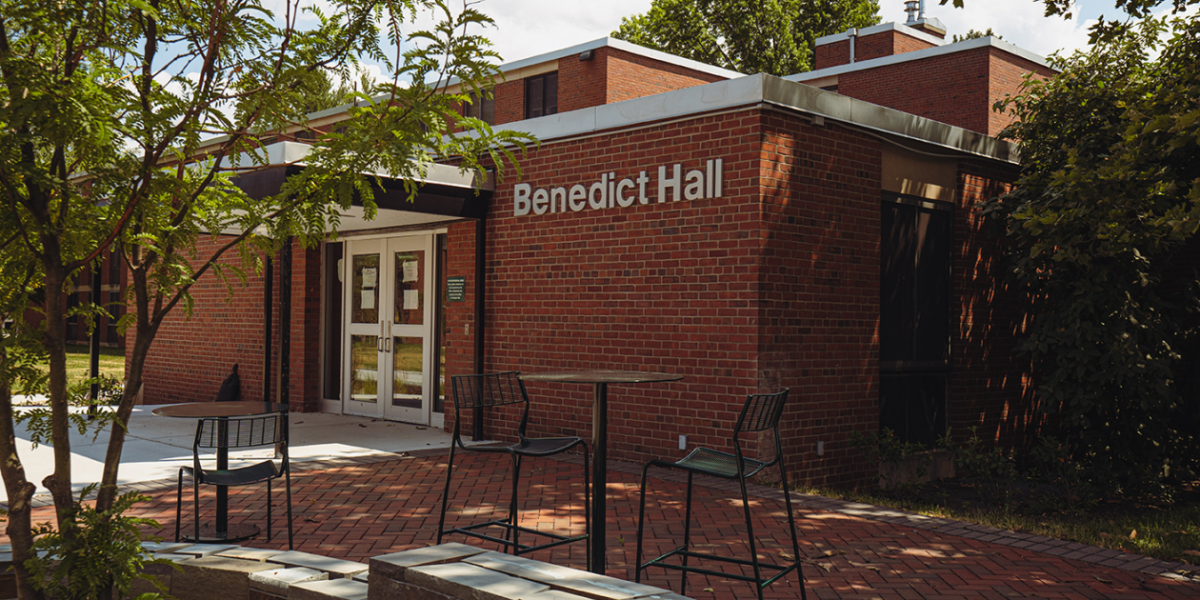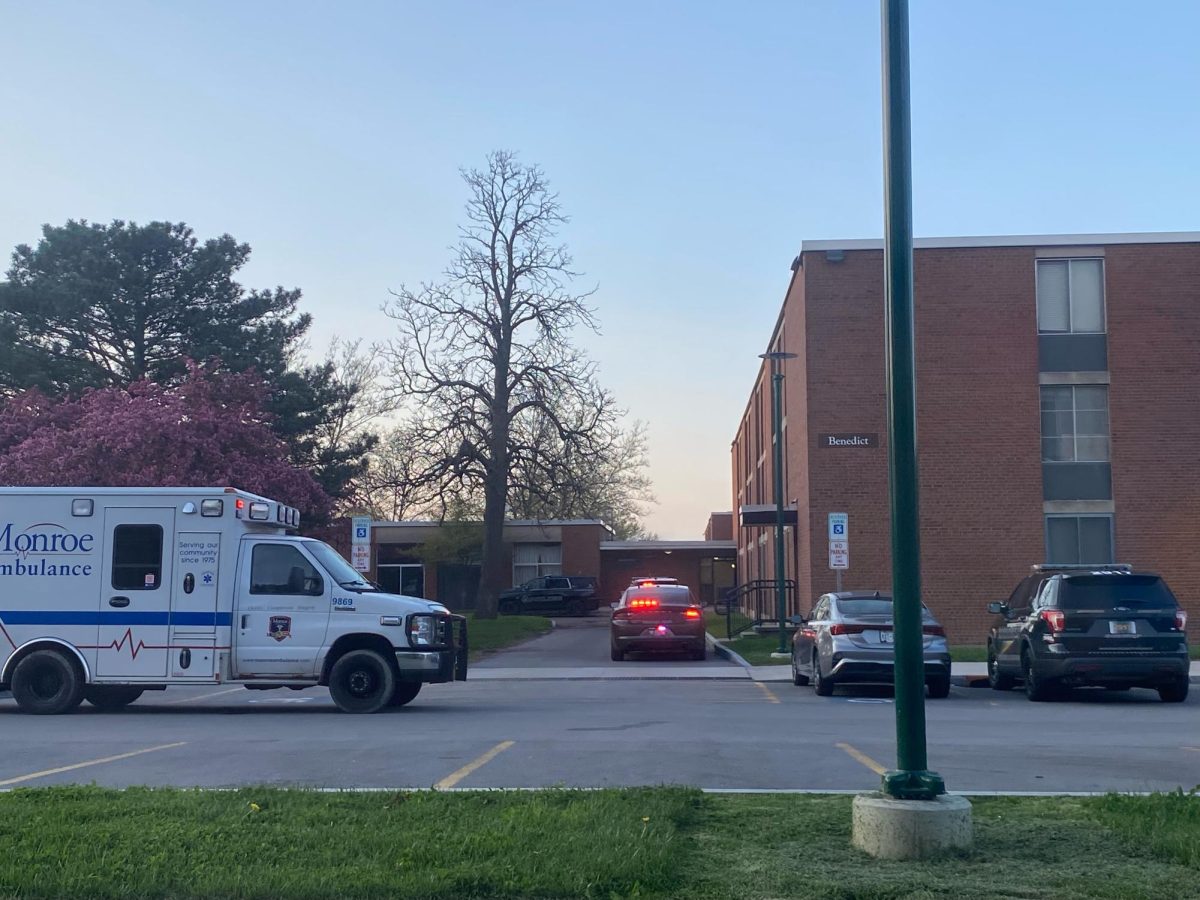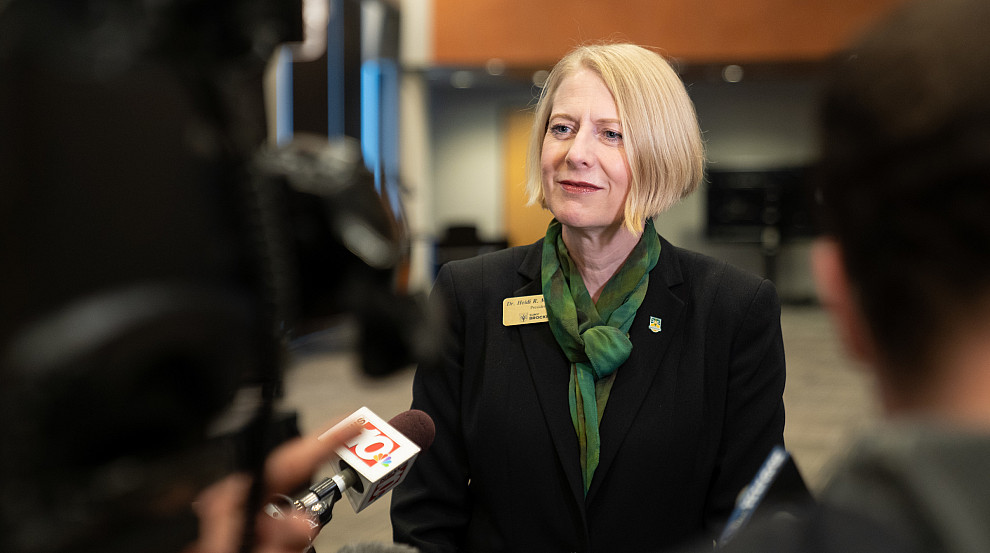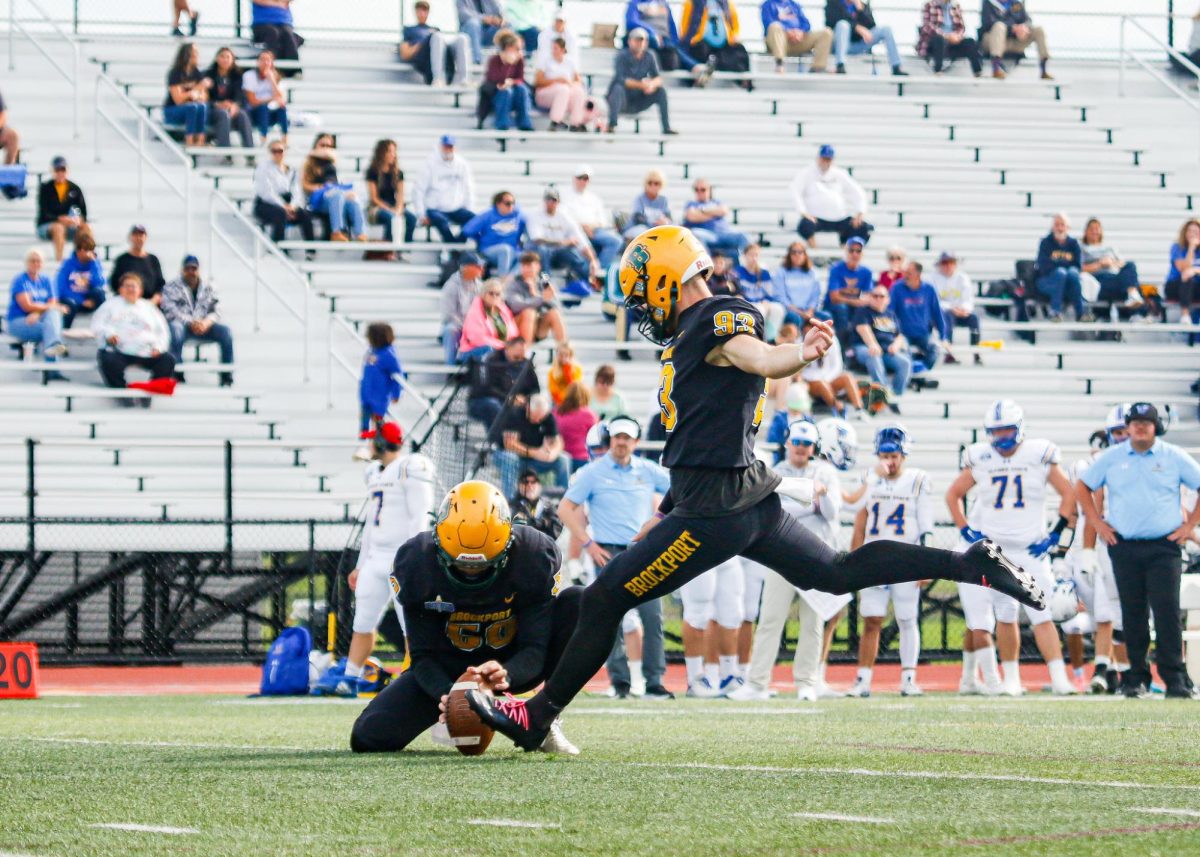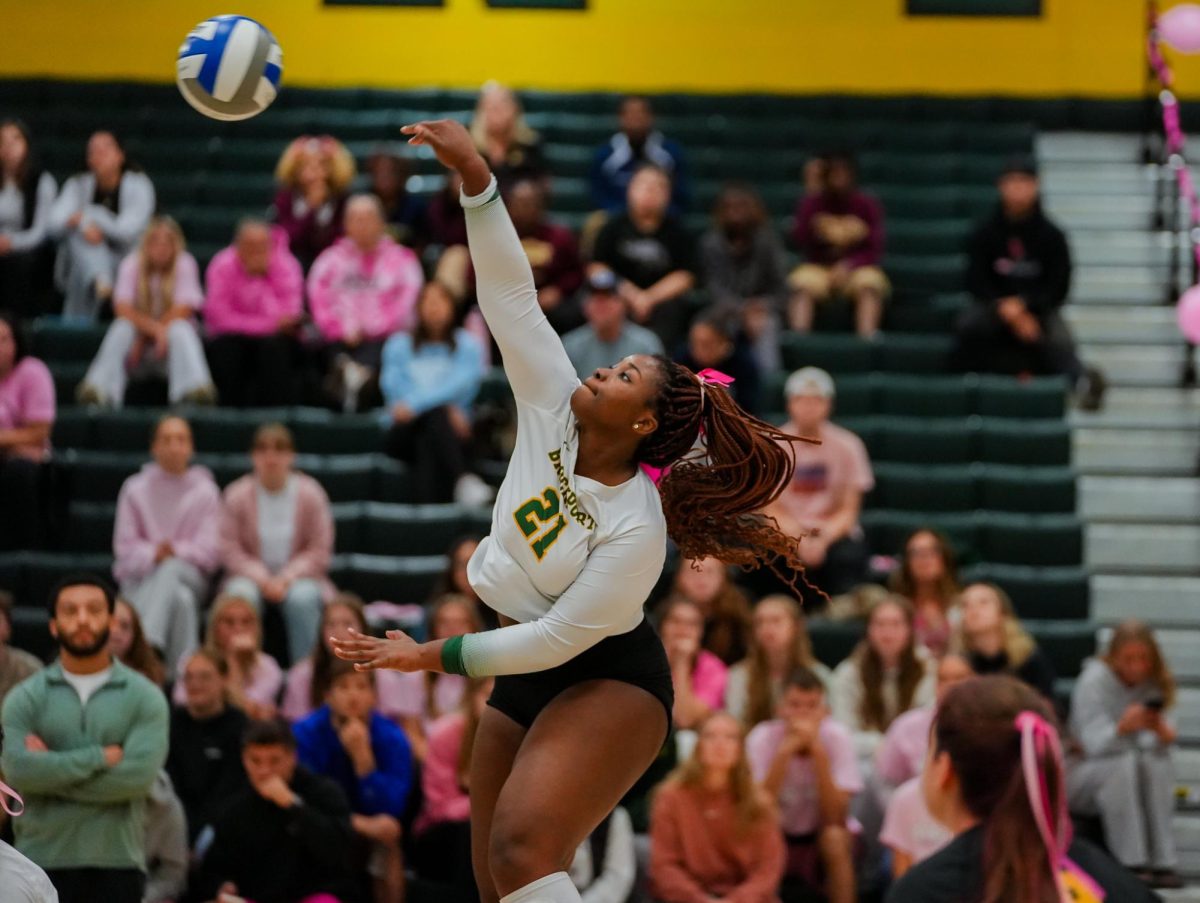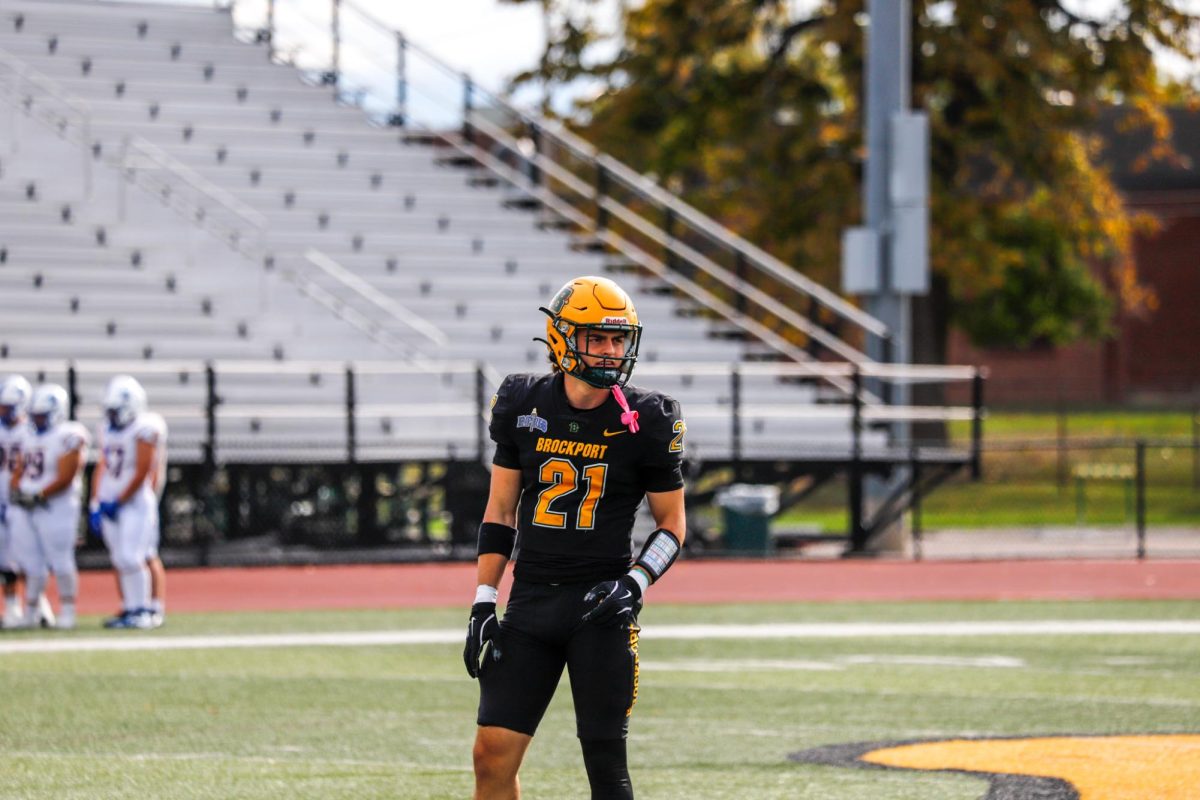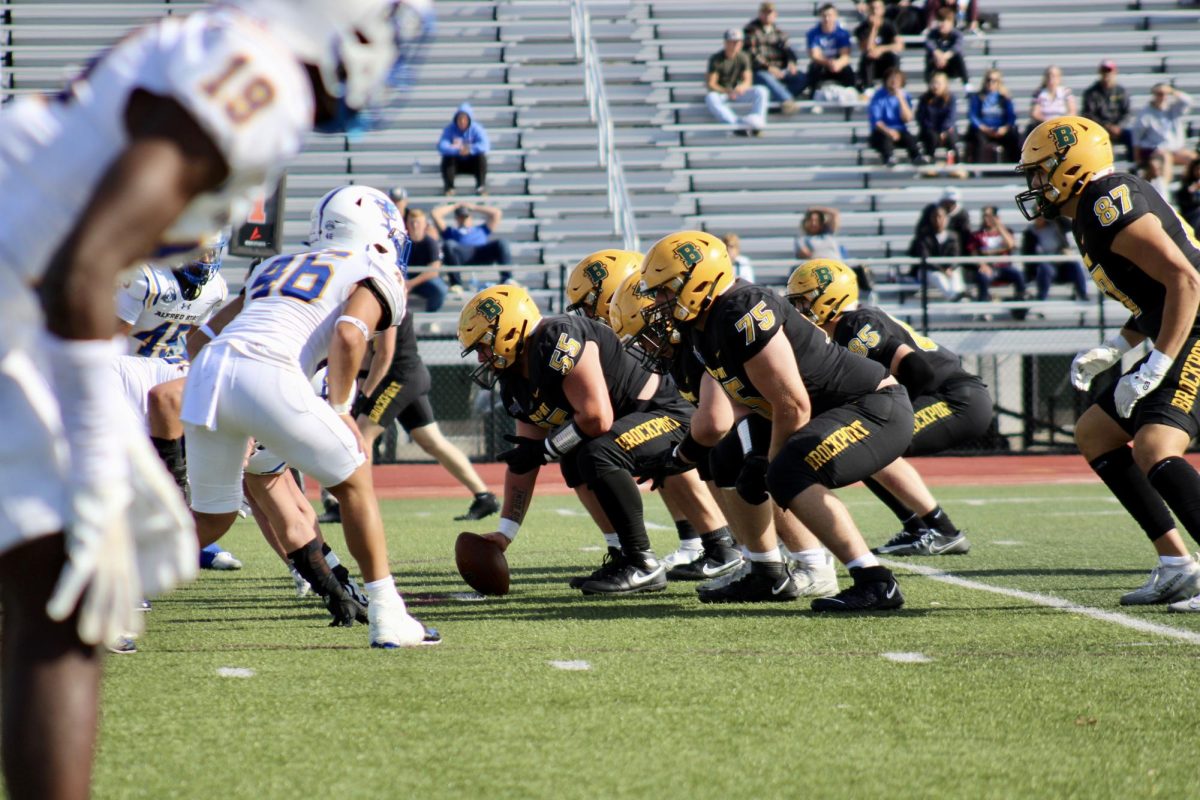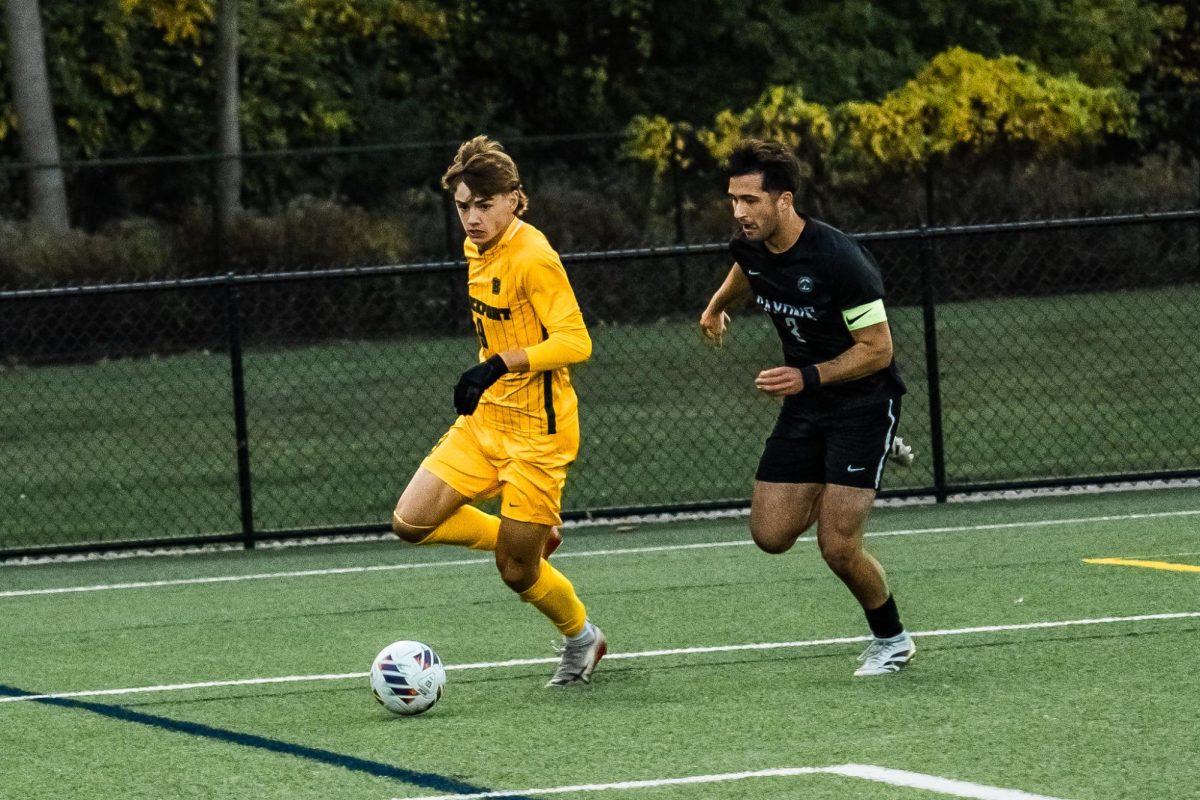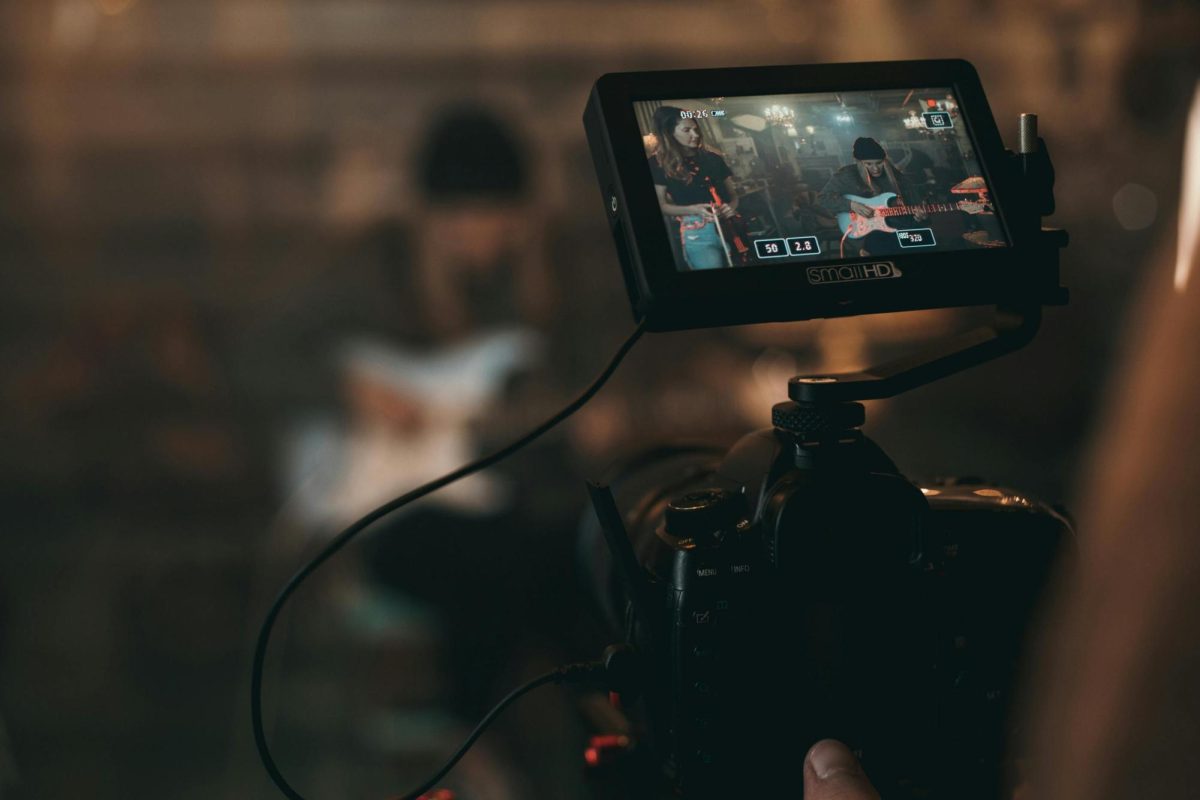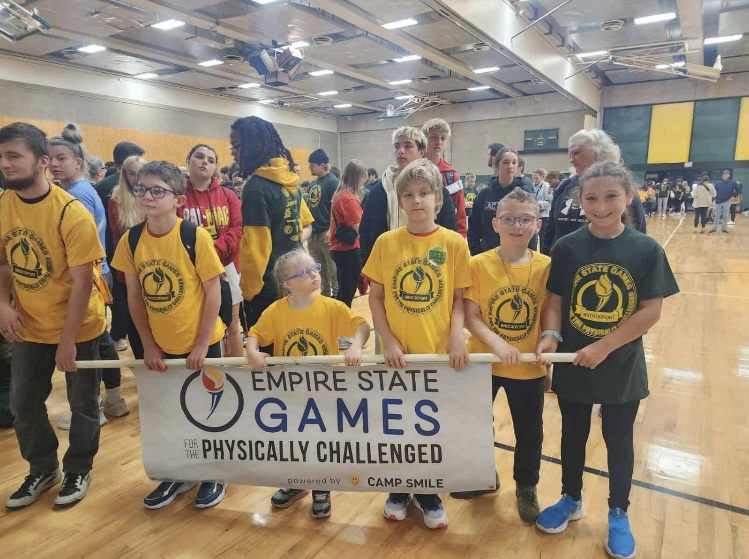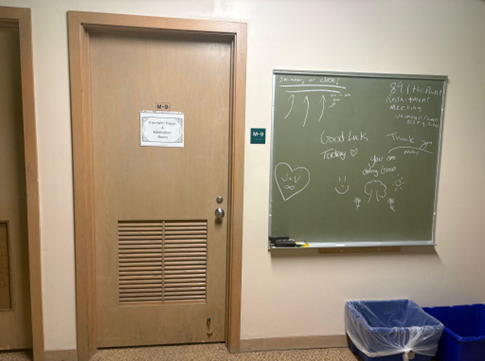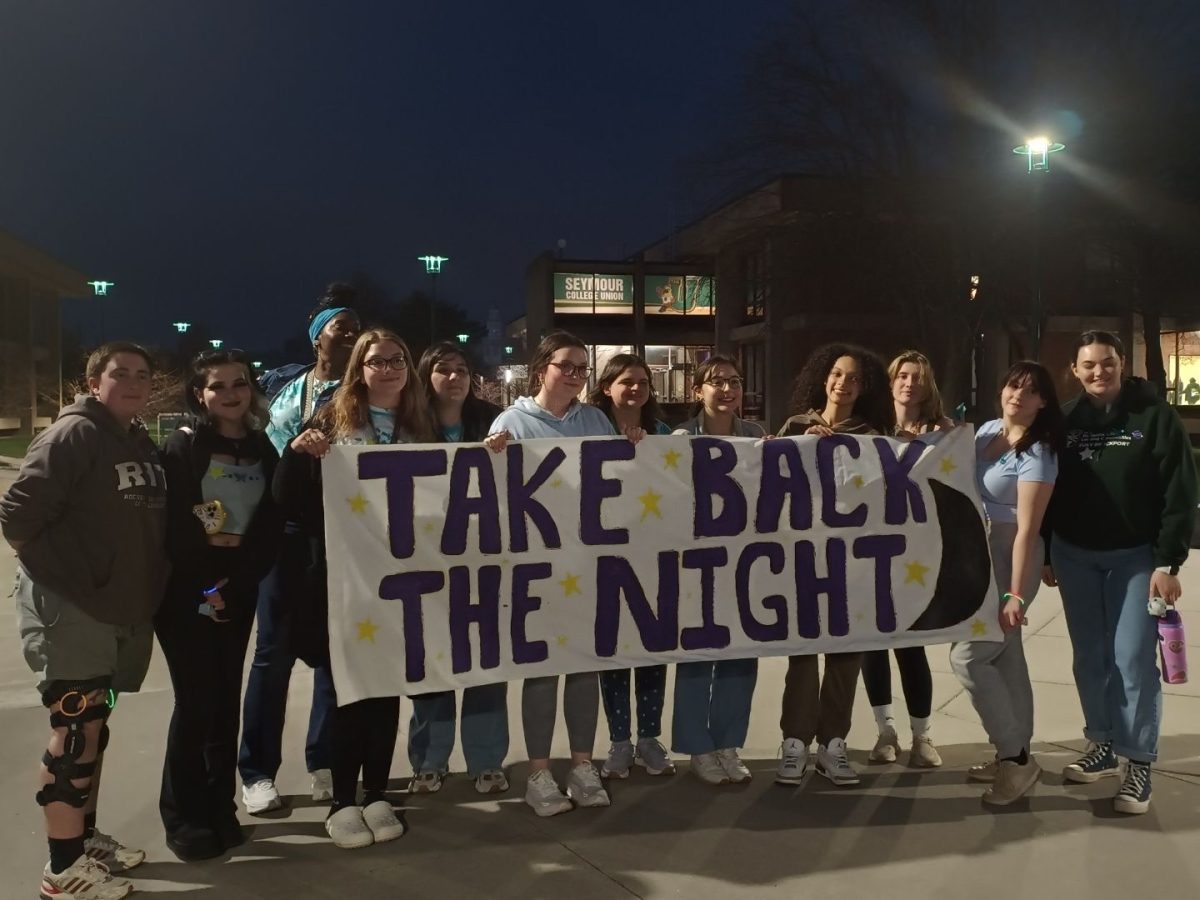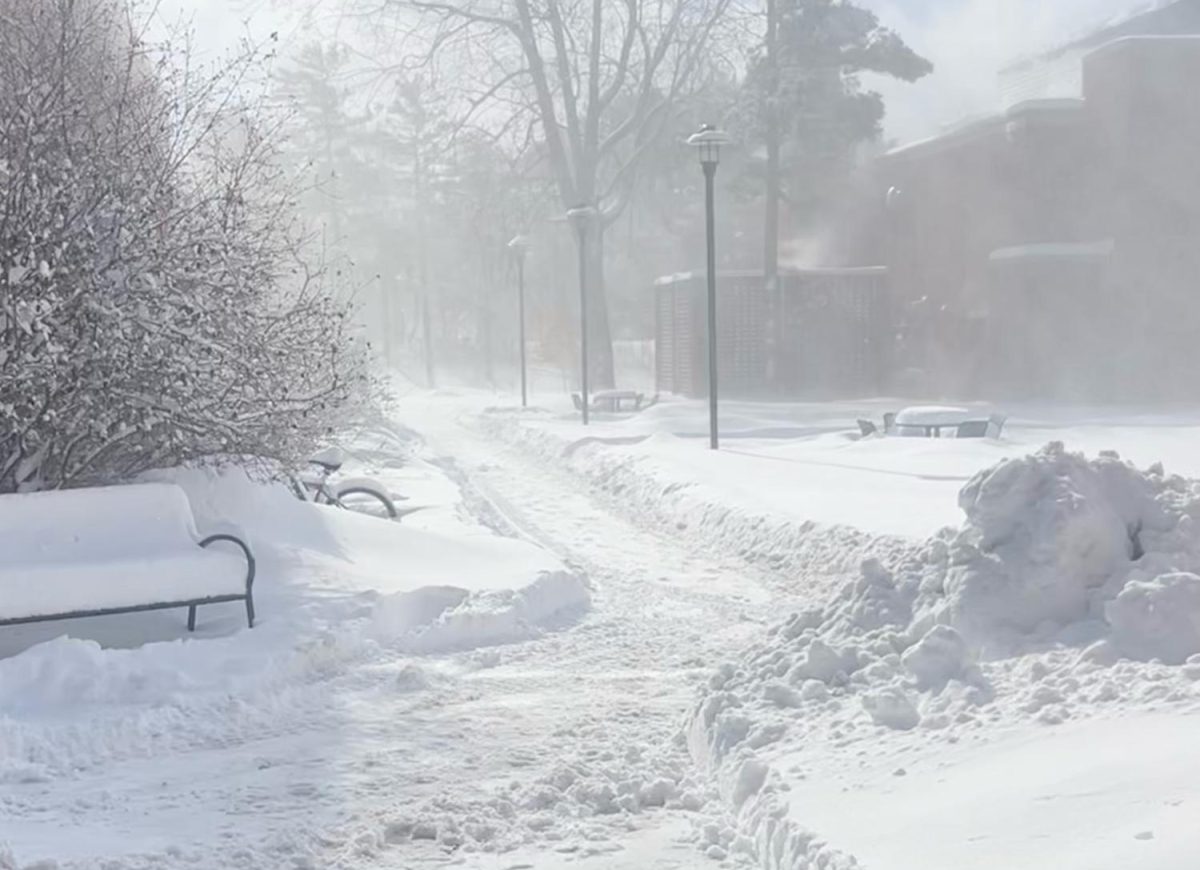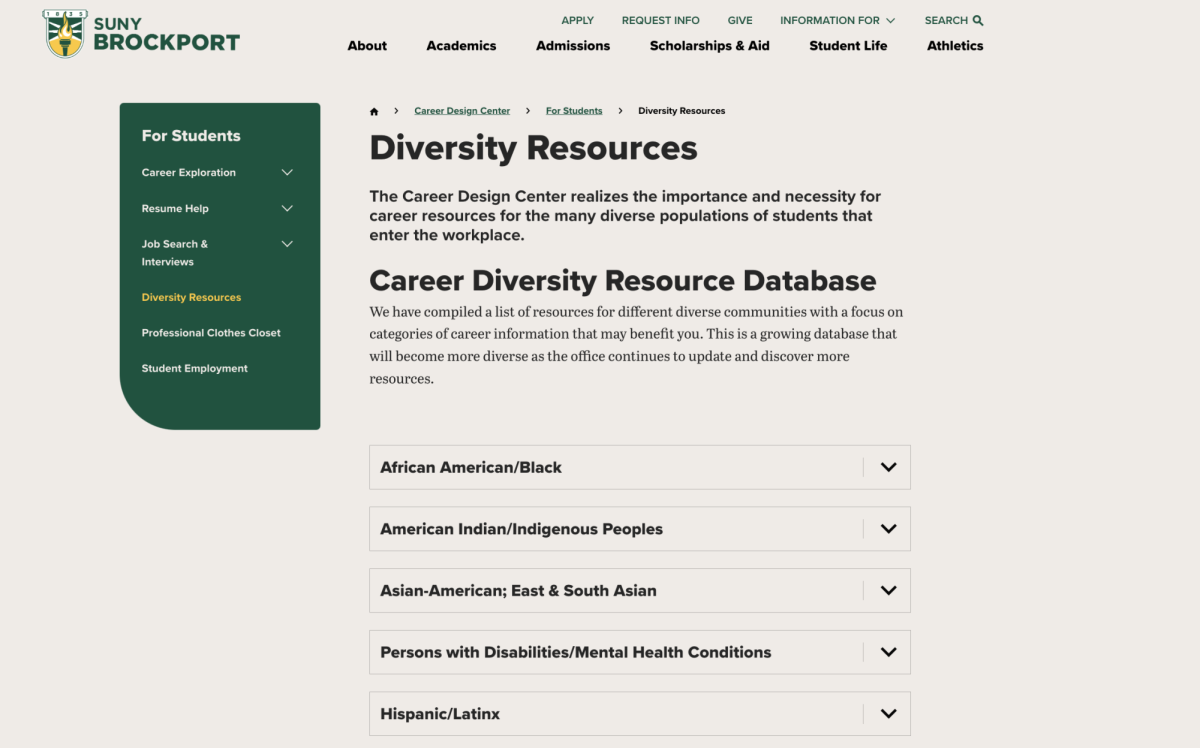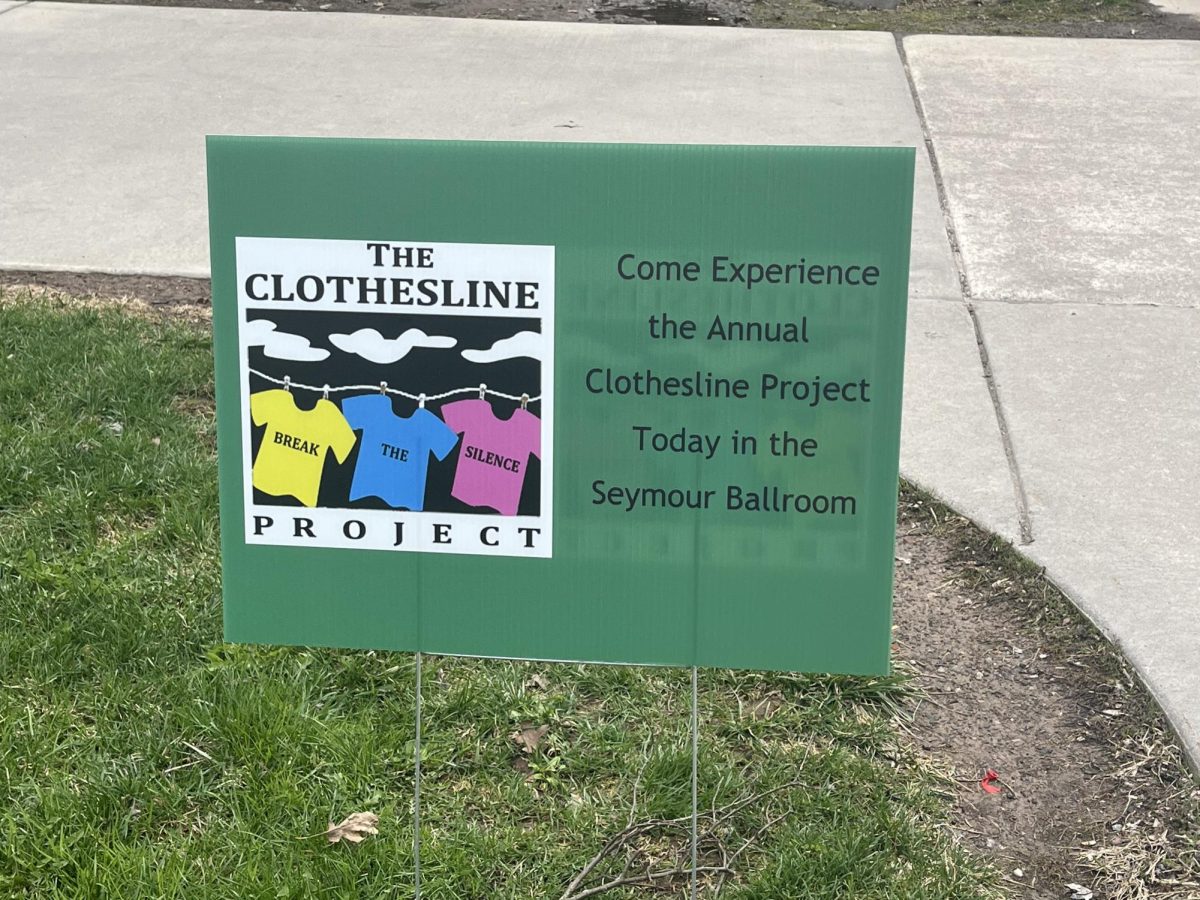In celebration of Hispanic Heritage month, Brockport offered a panel discussion titled “Lunch & Learn: Cultural Awareness & Humility to Effect Change in Higher Education” to all students on Wednesday, Sept.18.
The panel included Interim Chief of Staff and Strategic Initiatives at Rockland Community College Dr. Virginia Meléndez, Vice President of Human Resources, Diversity and Inclusion at SUNY New Paltz Tanhena Pacheco Dunn, Esq., CUNY Chancellor Féliz Matos Rodríguez and SUNY Oneonta President Alberto Cardelle, Ph.D, MPH.
During the luncheon, the four discussed ideas on cultural humility, identity, values and intentionality related to often being in the minority. Cardello first addressed cultural humility when asked about his cultural background and lived experiences.
“We come with a cultural being, an academic being, well informed, having a certain intellectual curiosity, sometimes very much rooted in a specific tradition,” Cardello said. “I think the cultural humility of our professions impacts everyone, but it particularly impacts our communities of color, our communities that are underrepresented.”
Rodríguez answered the same question and shared a similar view on humility as Cardello.
“Being aware of the opportunities that you’ve had, being proud of what you have made with your own resources and with your own hard work, that anchor concept of humility, is indispensable.” Rodríguez said.
Pacheco Dunn’s answer was predicated more from a sense of curiosity regarding humility.
“The thing about cultural humility is being vulnerable to what you don’t know about yourself yet and what you want to learn about other people,” Pacheco Dunn said. “It’s about that desire to enter into a community with a sense of curiosity and learning. I think that’s what drew me to higher education as my career, just the passion for understanding that this is actually a place where a growth mindset takes root.”
Moving on from cultural humility, the panelists were asked to discuss equity in policies. Cardello said that it requires more than a little effort being made.
“It is critical that your leadership position makes a difference in going above and beyond, what you would do normally,” Cardello said. “Non-minority populations are using the networks that are out there to identify leaders from underrepresented groups. They’re learning how to write ads and learning how to write profiles of major leadership positions that attract individuals from diverse backgrounds. And then, and I think this is the most important, is learning how to value the lived experience as a criteria for hiring.”
Part of achieving these equitable policies and practices is having the right leader in place. Meléndez shared advice on being aspiring leaders.
“Mentorship is really key to help you get to where you’d like to get, to build on your strengths,” Meléndez said. “Be a continuous, lifelong learner. Don’t stop. Acknowledge your challenges. We all have some kind of imposter syndrome. Look for new opportunities that challenge you so that you can learn and grow within and outside your discipline. Be that lifelong learner and push boundaries.”
Humility, equity and advice for leaders were important topics of the conversation; however, the question pertaining to relevancy and growing the Hispanic population in higher education
All four panelists had a view on this matter and all their answers covered the intentionality theme.
“What is it in our mission that we’re delivering and is that still relevant to the people that we’re serving?” Pacheco Dunn said. “I think sometimes leaders can get very myopic about their own vision for what an institution needs to be, and they miss the evolution of the people we’re serving. They also miss the evolution of the people who are coming to serve. People are growing different skills, learning different things. As institutions and as individuals, we have adapted to completely different ways of work and the mission of education. I think we need to make sure that we’re not my myopic in how we view our vision, and what it is that we say. We’re supporting as a mission.”
Rodríguez followed up acknowledging the impact the Hispanic community has had in his current position.
“There was intentionality in the Latino community to create spaces in higher education that allowed me to take opportunities that were building blocks from being a candidate, to being chancellor,” Rodríguez said. “It was people making the point and again, kudos to the system for embracing that and allowing that to flourish. It’s very clear that the opportunity that I have to serve as chancellor, has to do with some intentionality in the engagement of our community and people that came before me, and in investments that the system kept doing right, similar to this phenomenal institute that you’re part of. We need to continue to think, create and nourish those spaces and be intentional in the fact that we’re talking about leadership that runs programs in the schools.”
These four panelists have fostered an idea; however, the conversation needs to go beyond a luncheon. Both Pacheco Dunn and Cardelle sit on the Steering Committee of the SUNY Hispanic Leadership Institute (HLI) to, “provide guidance and advice to the HLI team,” the SUNY HLI website said. The HLI works to engage with the Hispanic/Latinx population and encourages professional growth in higher education.
Brockport offers a page of diversity-based resources for anyone who is interested. It provides scholarship opportunities, job websites, publications, professional organizations and state and federal laws.
For further information, use this link:https://www.brockport.edu/academics/career/diversity-resources/

